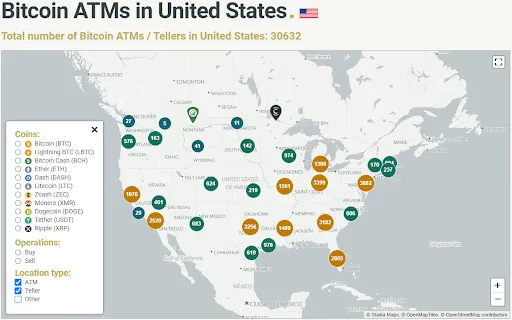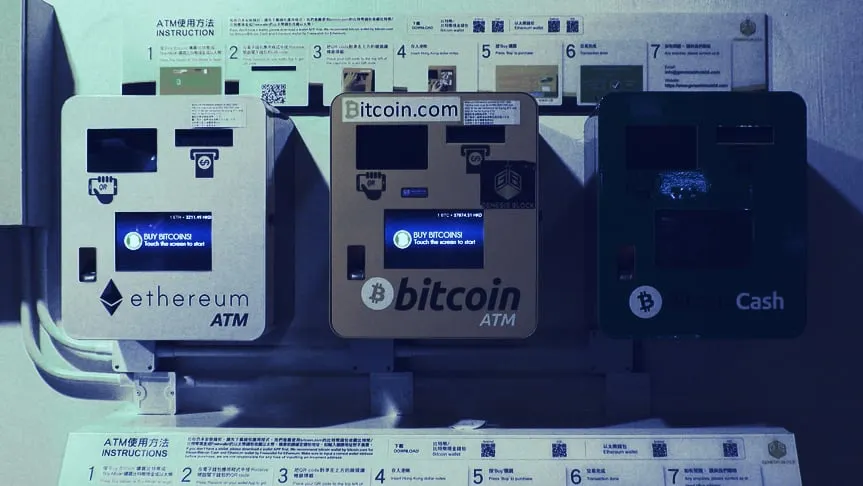We do the research, you get the alpha!
The United States Government Accountability Office (GAO) has published a report detailing how cryptocurrencies—and crypto kiosks—may be used to facilitate human and drug trafficking. A crypto kiosk is another term for popular crypto ATMs springing up around the country.
The report lays out two principal reasons why these kiosks or ATMs may be helping facilitate criminal activity.
"While kiosk operators are required to register with FinCEN, they are not required to routinely report the specific locations of their kiosks," the report reads. "This limits federal agencies' ability to identify kiosks in areas that have been designated as high risk for financial crimes and could involve human and drug trafficking."
Secondly, the report adds that virtual currency kiosks "may choose not to collect information about a user's identity." This, in turn, provides "some degree of anonymity" and makes virtual currencies "attractive to criminals," the GOA said.
The report also cites the FBI, which said that there has been "an increase in the use of virtual currency kiosks for illicit purposes," including human and drug trafficking.
According to Coin ATM Radar, a website that allows ATM operators to self-report ATM locations, crypto ATMs are rapidly spreading across the United States.
In January 2017, a total of 560 were active in the U.S. Today, that number has grown to over 30,000.

The GAO report also singles Bitcoin out as the biggest offender.
"Bitcoin is the most commonly used virtual currency that agencies have observed facilitating illicit activities, according to officials from several federal agencies we interviewed," read the report.
Unpacking the GOA's crypto concerns
In June 2021, the GAO reported on payment methods accepted by platforms involved in the American online commercial sex market, which the GAO claims can be used for illegal sex trafficking.
"The internet has enabled an online market for commercial sex, which may be used to promote the prostitution of oneself or others and sex trafficking," the GAO said.
The GOA analyzed 27 platforms engaged in the online commercial sex market. "Such platforms may be used to facilitate sex trafficking," the GOA added.
Their analysis found that 15 of the platforms accepted virtual currencies as a form of payment, among other forms of traditional payment. Three of these only accepted virtual currencies.
The GOA also interviewed officials at the Immigration and Customs Enforcement's Homeland Security Investigations unit (ICE-HSI), who said certain "anonymizing features" of cryptocurrencies attract sex traffickers.
Drug trafficking and crypto
The GOA also found that cryptocurrencies can be used to facilitate drug trafficking, a link that has been made many times before.
According to the ICE-HSI unit's Cyber Crimes Center—which is cited in the GOA report—an estimated 80-90% of dark web sales are related to illegal drugs, and these transactions are all crypto transactions because "other payment types are generally not accepted on dark web marketplaces."
The report cited the Drug Enforcement Administration's National Drug Threat Assessment, which found in 2020 that cryptocurrencies were becoming more commonly used as a means to transfer proceeds across borders.
It has been common knowledge that drug markets on the dark web have utilized cryptocurrencies for years. High-profile cases—all of which are cited in the GAO report—include Silk Road (2014), Alphabay (2017), Wall Street Market (2019), and Buyersclub (2020).
According to Chainalysis data published in 2020, dark web markets made more money in 2020 than in any previous year.
More recently, Chainalysis found that crypto-related crime hit a record high of $14 billion in 2021. This figure only represented 0.15% of the total $15.8 trillion in crypto volumes, however, marking the industry's lowest percentage of illicit transactions ever.





